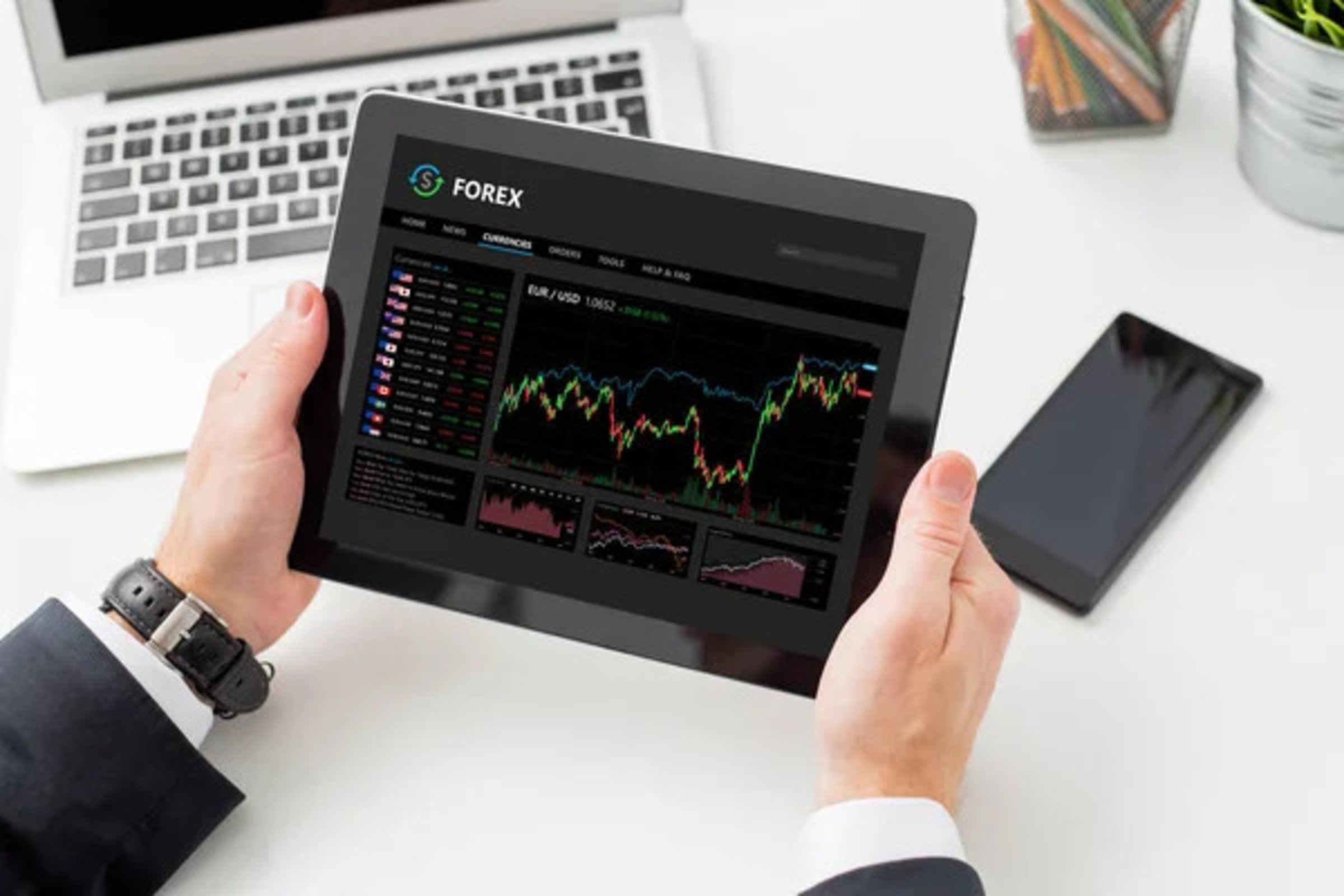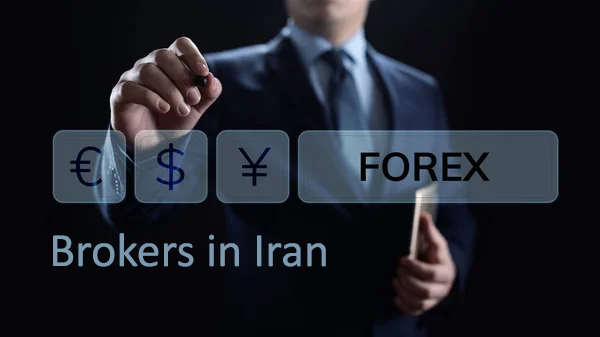
Overview of the Iranian Forex Trading Market

Iran's forex trading market has seen substantial growth over the past decade, driven by an increasing interest among individuals seeking alternative investment opportunities. Despite economic challenges, the demand for foreign exchange trading has proliferated as citizens look for ways to preserve and grow their wealth amidst local currency volatility. The market is characterized by a blend of institutional and retail traders, with the latter comprising the majority, primarily due to the accessibility of online trading platforms.
The forex market in Iran operates in a complex economic environment influenced by geopolitical tensions and domestic economic policies. The Iranian rial's fluctuations against major currencies, such as the US dollar and the euro, have spurred traders to engage in forex as a hedge against inflation and currency devaluation. This inclination towards forex trading is a reflection of wider global trends, where individuals and institutions alike seek financial instruments that offer both liquidity and potential high returns.
Forex trading in Iran is facilitated mainly through online platforms, which provide access to global currency markets. These platforms offer various tools and resources, including real-time quotes, technical analysis tools, and educational materials, making forex trading more accessible to the general public. The proliferation of mobile and internet technology has further democratized access to forex trading, allowing more people to engage in this financial activity from the comfort of their homes.
Despite the growing interest, the Iranian forex market remains underdeveloped compared to its global counterparts. The absence of a well-established domestic forex exchange means that most trading occurs through international brokers, often presenting challenges related to compliance with local regulations and securing reliable trading services. This setup necessitates a greater level of due diligence and risk management by traders to safeguard their investments.
The Iranian government's monetary policies and economic sanctions have a significant impact on the forex trading landscape. These factors can result in sudden market shifts, adding another layer of complexity for traders who must navigate not only the global currency markets but also the domestic economic policies that may influence market liquidity and currency stability.
In summary, the Iranian forex trading market is characterized by its rapid growth and the challenges posed by the broader economic environment. While it offers opportunities for profit, it also requires traders to maintain a keen awareness of both international market dynamics and domestic economic conditions.
Key Players in Iran's Forex Trading Scene

The Iranian forex trading scene comprises a diverse set of participants, ranging from individual retail traders to institutional players. Retail traders make up the largest segment, driven by the desire to capitalize on currency price movements for profit generation. These traders often rely on online trading platforms and broker services to access the forex market, utilizing leverage to maximize their trading potential.
In addition to retail traders, institutional investors such as banks and investment firms also participate in Iran's forex market. These entities engage in forex trading as part of their broader investment strategies, seeking to hedge against currency risks and diversify their portfolios. Institutional traders typically have access to more sophisticated trading tools and resources, enabling them to execute large-scale trades and employ complex trading strategies.
Another significant group of players in the Iranian forex market are the brokers, both domestic and international, who facilitate trading activities. Brokers serve as intermediaries, providing trading platforms, analytical tools, and customer support to traders. The competitive landscape among brokers is intense, with many vying to attract clients by offering innovative trading solutions, competitive spreads, and comprehensive educational resources.
International brokers play a crucial role in the Iranian forex market due to the lack of a robust domestic forex exchange. These brokers connect Iranian traders to global markets, enabling them to trade a wide range of currency pairs. However, Iranian traders often face challenges when dealing with international brokers, including compliance with local regulations and navigating restrictions imposed by international sanctions.
Local financial institutions, though not as prominent as their international counterparts, also contribute to the forex trading ecosystem. Some banks offer forex-related services, such as currency exchange and market analysis, helping traders make informed decisions. These institutions are crucial in providing liquidity to the market and ensuring the smooth operation of currency trading activities.
Overall, the Iranian forex trading scene is a complex ecosystem involving various stakeholders who interact to drive market activity. Each player has a unique role in shaping the market dynamics, contributing to its growth, and addressing the challenges inherent in the current economic environment.
Regulations Impacting Forex Trading in Iran

Forex trading regulations in Iran are influenced by the country's broader economic policies and geopolitical considerations. The Central Bank of Iran (CBI) is the primary regulatory body overseeing currency trading, playing a pivotal role in shaping the regulatory framework aimed at ensuring market stability and protecting investors. However, the regulatory environment is often seen as restrictive, reflecting the government's efforts to control capital flow and currency exchange rates.
One of the key regulatory measures impacting forex trading in Iran is the imposition of currency controls and restrictions on the free exchange of money. These controls are intended to stabilize the rial and prevent capital flight, but they can also limit traders' ability to access international markets and execute trades seamlessly. This necessitates a reliance on international brokers and alternative trading channels, which may not always align with local regulations.
Sanctions imposed by international bodies have further complicated the regulatory landscape for forex trading in Iran. These sanctions often restrict Iranian traders' access to global financial markets and institutions, creating additional hurdles for those seeking to engage in forex trading. Regulatory compliance with both domestic policies and international sanctions is a critical concern for traders, requiring them to navigate a complex web of legal constraints.
The Iranian government has also implemented measures to combat illegal forex trading and money laundering, given the potential for the forex market to be used for illicit financial activities. These measures include stricter reporting requirements and increased scrutiny of forex transactions, aimed at enhancing transparency and accountability in the market. Traders must ensure that their activities are compliant with these regulations to avoid legal repercussions.
Despite these challenges, there are ongoing discussions about reforming the regulatory framework to promote greater transparency and encourage the development of the forex market in Iran. Reforms could potentially include the establishment of a domestic forex exchange and the introduction of clearer guidelines for traders and brokers, fostering a more robust and investor-friendly trading environment.
In conclusion, the regulatory landscape for forex trading in Iran is shaped by a combination of domestic policies and international sanctions, presenting both challenges and opportunities for market participants. Navigating these regulations requires careful consideration and strategic planning to ensure compliance and capitalize on market opportunities.
Challenges Faced by Iranian Forex Traders

Iranian forex traders face a myriad of challenges stemming from the country's unique economic and geopolitical situation. One of the foremost challenges is the volatility of the Iranian rial, which can fluctuate dramatically due to political developments, economic policies, and external sanctions. This volatility presents both opportunities and risks, requiring traders to employ sophisticated risk management strategies to protect their investments.
Access to reliable trading platforms and services is another significant challenge for Iranian forex traders. Many international brokers are hesitant to operate in Iran due to the risk of violating international sanctions, leading to a limited selection of platforms available to local traders. This can result in higher transaction costs and reduced access to advanced trading tools and resources, limiting traders' ability to effectively participate in the global forex market.
The lack of a robust domestic forex exchange means that Iranian traders must often rely on informal networks or foreign brokers to execute trades. This reliance can pose issues related to security and trust, as traders must ensure that their funds are protected and that the brokers they deal with are reputable and compliant with international standards.
Regulatory constraints, particularly those related to currency controls and restrictions on capital flows, further complicate the trading environment. These regulations can limit traders' ability to move funds freely and execute cross-border transactions, hindering their capacity to respond swiftly to market changes and capitalize on trading opportunities.
Educational resources and market information can also be scarce for Iranian traders, particularly those new to the forex market. Access to high-quality trading education, market analysis, and professional guidance is essential for developing the skills necessary to succeed in forex trading. The limited availability of such resources can put Iranian traders at a disadvantage compared to their international counterparts.
In summary, Iranian forex traders face a range of challenges that require careful navigation and strategic planning. These challenges can impact their ability to effectively engage in forex trading and achieve their financial goals, necessitating a proactive approach to risk management and market participation.
Opportunities for Growth in Iran's Forex Market

Despite the challenges, there are significant opportunities for growth in Iran's forex market, driven by a combination of technological advancements and increasing investor interest. The proliferation of online trading platforms and mobile technology has made forex trading more accessible to a wider audience, allowing more Iranians to participate in the global currency markets from their homes or offices.
The potential for developing a more robust domestic forex exchange presents a significant opportunity for the Iranian market. By establishing a regulated exchange, the government could enhance market transparency, improve investor protections, and attract more participants, both domestically and internationally. Such an exchange could also facilitate more efficient capital flow and currency trading, bolstering the overall financial infrastructure.
Educational initiatives aimed at increasing financial literacy and trading expertise among Iranians could further stimulate market growth. By providing access to comprehensive training programs, market analysis, and professional guidance, aspiring traders can develop the skills necessary to succeed in the forex market. This, in turn, could lead to a more informed and engaged trading community, capable of making strategic decisions and maximizing trading opportunities.
The diversification of trading products and services is another avenue for growth. By offering a wider range of currency pairs, financial instruments, and trading tools, brokers can attract a broader client base and encourage more active participation in the forex market. This diversification can also mitigate risks associated with trading a limited number of currency pairs, providing traders with more options to achieve their investment goals.
Collaboration with international financial institutions and technology providers can also drive growth in Iran's forex market. By leveraging global expertise and technological innovations, Iran can enhance its trading infrastructure and offer more competitive services to traders. This collaboration could lead to the development of advanced trading platforms, improved market access, and greater integration with global financial markets.
In conclusion, while there are challenges to overcome, the opportunities for growth in Iran's forex market are substantial. By leveraging technology, enhancing financial literacy, and fostering regulatory reforms, Iran can create a more dynamic and resilient forex trading environment that benefits both traders and the broader economy.
Future Outlook for Forex Trading in Iran

The future outlook for forex trading in Iran is shaped by a range of factors, including economic policies, technological advancements, and geopolitical developments. As the global forex market continues to evolve, Iran's participation will depend on its ability to adapt to changing conditions and leverage its unique strengths to attract traders and investors.
One potential driver of growth in Iran's forex market is the implementation of regulatory reforms aimed at enhancing transparency and investor protections. By establishing a clear and consistent regulatory framework, Iran can foster greater confidence among traders and attract more participants, both locally and internationally. Such reforms could also pave the way for the establishment of a domestic forex exchange, further integrating Iran into the global financial system.
Technological innovation will continue to play a crucial role in shaping the future of forex trading in Iran. The adoption of advanced trading platforms, mobile applications, and algorithmic trading tools can enhance market accessibility and efficiency, enabling traders to execute trades more effectively and manage risks more proactively. By embracing technology, Iran can position itself as a competitive player in the global forex market.
Geopolitical developments, particularly those related to international sanctions and diplomatic relations, will also impact the future of forex trading in Iran. Any easing of sanctions or improvement in diplomatic ties could open up new opportunities for Iranian traders, facilitating greater access to global markets and enhancing cross-border financial transactions. Conversely, heightened tensions could pose challenges, requiring traders to remain vigilant and adaptable.
The emphasis on financial education and literacy will be crucial in preparing Iranian traders for future market challenges. By investing in comprehensive training programs and resources, Iran can nurture a new generation of skilled traders who are equipped to navigate the complexities of the forex market and capitalize on emerging trends and opportunities.
In conclusion, the future of forex trading in Iran holds promise, contingent on the country's ability to implement effective reforms, embrace technological advancements, and navigate geopolitical dynamics. By addressing current challenges and leveraging growth opportunities, Iran can foster a vibrant and resilient forex market that contributes to the country's economic development and global financial integration.

بازار فارکس در ایران در سالهای اخیر رشد زیادی داشته است. افزایش علاقه مردم به سرمایهگذاری باعث شده که افراد بیشتری وارد این بازار شوند.
یکی از دلایل اصلی رشد بازار فارکس در ایران، نوسانات نرخ ارز است که مردم را به سمت این بازار جذب کرده است.
به نظر میرسد که دولت باید مقررات بهتری برای حمایت از معاملهگران فارکس فراهم کند تا این بازار بتواند به رشد خود ادامه دهد.
استفاده از پلتفرمهای آنلاین نقش مهمی در دسترسی آسانتر ایرانیان به بازارهای جهانی ایفا کرده است.
چالشهای مربوط به تحریمها و محدودیتهای قانونی همچنان برای معاملهگران ایرانی مشکلساز هستند و نیازمند تدبیر بیشتری هستند.
.نوسانات شدید ریال باعث شده تا بسیاری از ایرانیان به دنبال راهکارهایی برای حفظ ارزش داراییهای خود باشند
شفافیت قوانین میتواند اعتماد بیشتری بین معاملهگران ایجاد کند.
آینده این بازار بستگی زیادی به اصلاحات و تحولات سیاسی دارد.
دسترسی به پلتفرمهای آنلاین باعث شده افراد بیشتری به معاملهگری روی بیارند.
بازار فارکس در ایران رشد زیادی داشته، اما هنوز به سطح بازارهای جهانی نرسیده.
امکان دسترسی بیشتر به بازارهای جهانی از طریق بروکرهای بینالمللی وجود دارد.
.ریسک مدیریت در این بازار بسیار مهم است زیرا نوسانات زیادی وجود دارد
برای موفقیت در فارکس، آموزش و منابع اطلاعاتی خیلی مهم هستند.
برای موفقیت در فارکس، آموزش و منابع اطلاعاتی خیلی مهم هستند.
فناوری های جدید میتوانند نقش مهمی در توسعه این بازار ایفا کنند.
تحریمها و سیاستهای داخلی چالشهای بزرگی برای معاملهگران ایرانی ایجاد کردهاند.